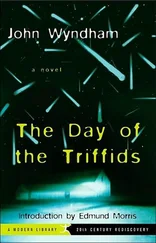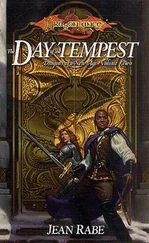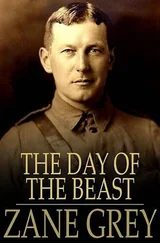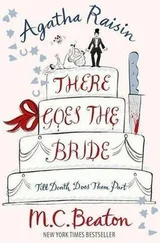“What do you mean?”
Agatha lay back in silence for a moment. Then she said, “I asked Freda Stokes if Kylie had been particularly friendly with any of the girls and she said no. I asked her about wedding presents. She said that Marilyn Josh had given Kylie a thong swim-suit. Now it must have seemed like a shocking present to Freda, who at that time considered her daughter a respectable virgin. But what if it was something that Kylie really wanted? When I first saw her, she was getting a bikini wax. She said it was because Zak wanted it, but maybe Kylie wanted it to sport her swim-suit on her honeymoon. You see,” went on Agatlia eagerly, “Marilyn might have been in on it. She might have known Kylie very well. I think Zak or Terry got her, at the hen party, to whisper to her to bring the wedding dress round to the disco and she’d let her know what she thought.”
“Zak said nothing about Marilyn Josh,” said Brudge, “but we’ll check it out. Here’s Mrs. Bloxby.”
Brudge stood up to leave.
“Aren’t you going to thank me?” asked Agatha.
“For what? For nearly getting killed? For interfering in police business? You’re damn lucky you’re not being charged. You were wearing that wig again when we found you.”
“Oh, sod off!” shouted Agatha to his retreating back.
“That wasn’t very nice, Mrs. Raisin,” said Mrs. Bloxby reprovingly.
“He deserved it,” said Agatha sulkily.
“You seem to be back on your old form.” The vicar’s wife sat down beside the bed. “It’s in all the newspapers and on television.”
“What do they say about me?”
“Nothing, I’m afraid. Just about Kylie and Joanna and that a large quantity of drugs was found at the disco.”
“That does take the biscuit! They’d never have found out if it hadn’t been for me,” complained Agatha. “Where’s John?”
“Coming along later.”
“Really! Can you get me my handbag out of that locker? I’ve got make-up in it.”
“When are they going to release you?” said Mrs. Bloxby, retrieving Agatha’s capacious handbag and handing it to her.
“Tomorrow,” said Agatha, taking out a small mirror and squinting at her face in it. “I look a fright.”
She busily began to apply foundation cream. “Do you think that’s a spot coming on my forehead?”
“Can’t see anything,” said Mrs. Bloxby. “I’ve brought you a box of chocolates.”
“How kind of you.” Agatha eyed the box greedily. She loved chocolates but hated the effect even one had on her imagination. One chocolate and she could feel her stomach expanding and her hips grower wider. Still, she had gone through a lot and she deserved at least a few.
She applied powder and lipstick and then opened the box. “Have one.”
“I’ve just had breakfast.”
“Oh, go on,” urged Agatha. “I’ll feel like a pig eating them myself.”
Mrs. Bloxby took one and Agatha took one and ate it and then reached for another.
They chatted about village affairs, and when Mrs. Bloxby at last stood up to leave, Agatha realized that the chocolate box was nearly empty and Mrs. Bloxby had only eaten two.
♦
John Armitage arrived in the afternoon, bearing a large bouquet of flowers which Agatha studied carefully until she had judged they were slightly more expensive than the ones he had taken to Joanna.
“Have you heard the latest?” he asked.
“No, what’s that?”
“I heard it on the radio. They’ve rounded up the gang in Birmingham, the ones that got Terry Jensen to store the stuff.”
“And Brudge never even said thank you,” said Agatha.
“I think he got the impression that you were interfering. But you’ll have your moment at the trial.”
“Me! If I hadn’t interfered, as you put it, he’d still be none the wiser.”
“It’s certainly been quite a case. How are you feeling?”
“Fine. I’m out of here tomorrow.”
“I’ll take you for dinner to celebrate.”
Agatha brightened. “That’ll be nice. Where?”
“There’s a French restaurant in Oxford, Ma Belle, in Blue Boar Street. They’ve got tables set out in a courtyard in front of the restaurant, and if the weather stays fine, we can go there. I’ll pick you up at seven.”
♦
After he had left, Bill Wong arrived with more flowers. “Agatha,” he said, “I hope this is the last time I have to visit you in hospital after a case. You did a very dangerous thing.”
“Does that man Brudge do nothing but complain about me?” demanded Agatha furiously.
“I called at the vicarage yesterday. It’s Mrs. Bloxby who worried about you. If John Armitage hadn’t decided to call the police, you would have been frozen meat.”
But Agatha, as usual, was not going to take the blame for anything. She gave him a long speech about the fact that it was due to her own brilliance that the police had wound up such a successful case.
“That’s an expensive bouquet,” said Bill, who had not really been listening to her and was pointing to John’s offering.
“It’s from John Armitage,” said Agatha proudly. “He’s taking me out for dinner tomorrow night.”
“Be careful.”
“I’m not a virgin.”
“It’s just you had enough pain and trouble over falling in love with your last neighbour.”
“I’m not going to fall in love with John Armitage,” howled Agatha.
♦
But the next day, as she left the hospital to be driven home by Mrs. Bloxby in the old Morris Minor, Agatha made polite conversation while all the time her mind was plotting and planning what to wear for dinner that evening.
Once home, she resisted the impulse to rush out and buy something new. She had plenty of clothes. It was just a matter of choosing the right things. After having taken every item out of her wardrobe, she settled for a deep-crimson silk evening skirt, slit up the side, and a soft white silk blouse with a plunging neckline.
That evening, made up with care, scented, hair brushed and burnished, she felt she had never looked better. John arrived at seven and they set off for Oxford. It was a warm, glorious evening, with the sun sending down shafts of golden light between the trees, which were still fresh and green, having not yet taken on the dull heaviness of summer.
For once Oxford looked to Agatha like the city of dreaming spires instead of what she usually saw as a mess of bad traffic system, panhandlers and drunken fourteen-year-olds.
John had booked a table in the courtyard of the restaurant. They ordered their meal and a bottle of wine. They talked about the case, going over and over it, until John asked, “You seemed to think my book, the one you read, was not quite real. Why was that?”
They were on to their second bottle of wine. Agatha, mellow and secure in his company, began to tell him about her upbringing in the Birmingham slums while he listened, fascinated.
Agatha hardly ever told anyone about this background from which she was so anxious to distance herself.
When she had finished, John ordered brandies and then leaned across the table and gazed into her eyes.
“What about it, Agatha?”
Agatha looked at him, puzzled.
“What about what?”
“You and me making a night of it.”
Agatha still did not understand. “You mean you want to go on somewhere?”
“Come on, Agatha. You know what I mean. The somewhere is your bed.”
“You’ve got a cheek,” said Agatha.
“We’re both adults.”
Agatha’s self-worth, never very high, sank like a stone. It was because she had told him about her upbringing that he thought that no preliminaries were necessary. She rose to her feet. “Excuse me.”
She walked into the restaurant and past the bar and the diners to a door at the side. She went out into a lane leading up to the High. She hailed a taxi and got in. “Carsely,” she said. “Near Moreton-in-Marsh.”
Читать дальше












